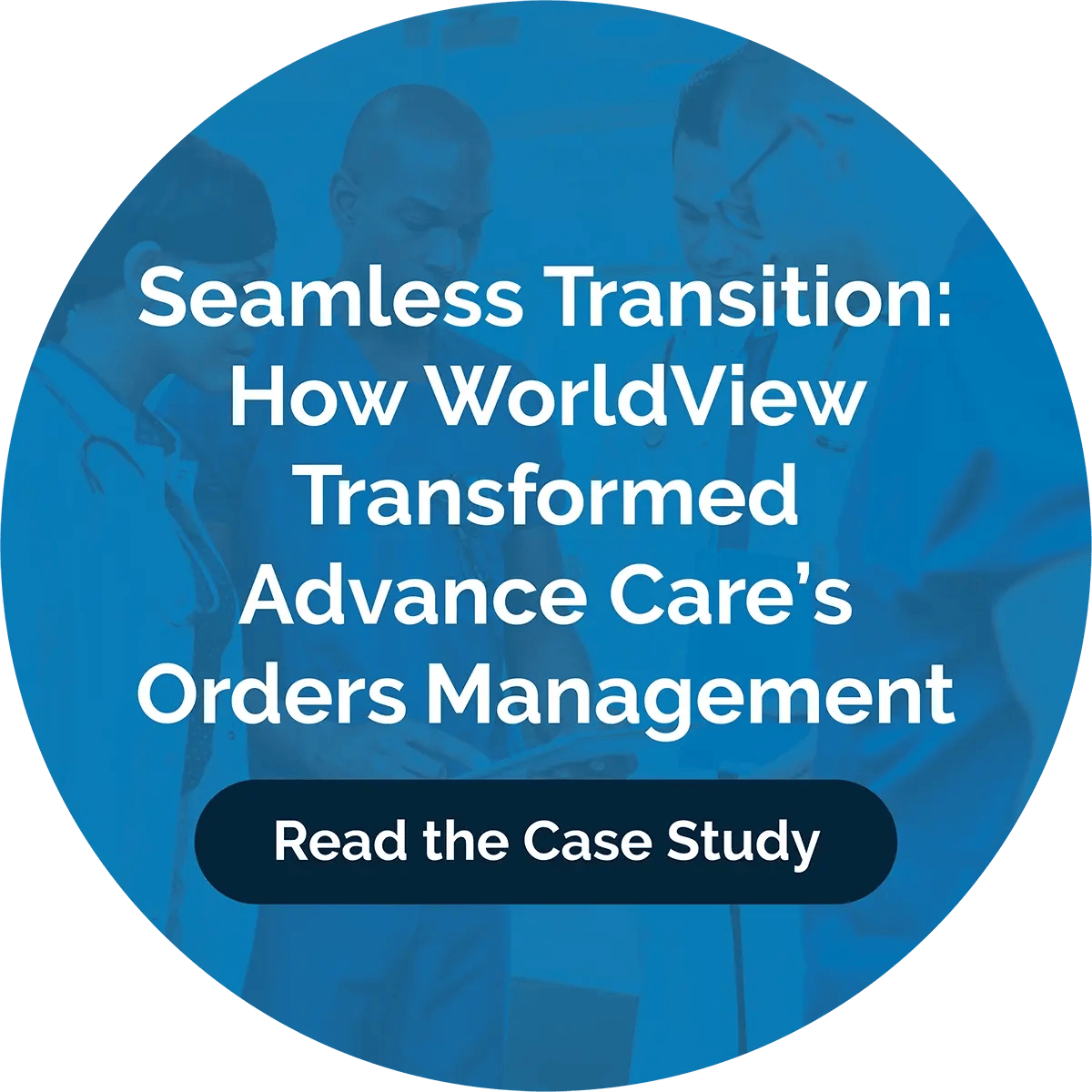6 Benefits of OASIS Home Health Care Services

The standardization of data for home health services helps make sure all patients receive the highest quality of care and that all providers have the data they need to make evidence-based decisions. OASIS, the Outcome and Assessment Information Set, plays a vital role in keeping your organization's data standardized.
What Is OASIS?
OASIS is an abbreviation that stands for Outcome and Assessment Information Set. With OASIS home health care, OASIS gathers a standardized data set about patients to measure quality and outcomes. The home health OASIS form helps ensure all patients have the same type of data recorded about their care for better consistency overall. Some of the information gathered includes:
- A patient's physical and mental state
- The functional status of a patient
- A patient's healthcare needs
- Clinical conditions
- Medical conditions
Your organization must collect OASIS data for:
- Medicare and Medicaid patients who receive skilled services once they're 18 or older.
- Private payers who need OASIS data for documentation.
There is an exception in data collection for prenatal and postpartum patients.
OASIS helps identify areas for improvement in patient care and to determine payment. Additionally, the data collected through Medicare OASIS is reported publicly to Medicare Care Compare.
6 Benefits of OASIS in Home Health Care Services
OASIS has several benefits your organization should take advantage of. These benefits help you provide better services and stay in regulatory compliance.
1. Assures Consistency and a Framework for Clinical Records Data Collection
OASIS reports are built on a consistent, standardized framework that helps collect the same types of data about each patient. Using consistent guidelines, your organization can be sure that you are systematically evaluating patients. By doing so, you obtain more accurate data.
That accurate data is essential, as your company may face a home healthcare audit by the Office of the Inspector General or need to prepare data for medical record requests.
2. Facilitates Meaningful Comparisons and Analysis Across Different Care Agencies
The standardization of data through OASIS helps keep data in alignment, which makes it simpler for agencies to compare data coming from different sources. Additionally, data is now arranged in specific sections, such as Mood or Behavior, which allows the various care agencies to identify the most important data about the patient in regard to their part in the patient's care.
Outside of an organization's view, standardizing data makes it easier to compare agencies and see where there could be quality improvements. For example, your agency may identify areas where you need to improve. Remember, the data is reported to Medicare Care Compare publicly. With data reaching the public, it's easier for agencies to be compared. In terms of research and policy development, OASIS data can be aggregated, allowing for:
- Research studies
- Policy evaluation
- Epidemiological analysis
- Advancements in best-practice guidelines
3. Enhances Collaboration Among Healthcare Providers
With proper standardization, it's easier for healthcare providers to communicate and coordinate as they work with patients. Through the standardization of assessment data, different healthcare providers have a better opportunity to understand the patient's needs while also being able to develop a care plan that works with what has been done previously. For example, a physical therapist will have access to the same data as an orthopedic surgeon, giving them both the information they need to collaborate on a patient's care, whether the patient needs occupational therapy, physical therapy, surgery, or another type of care.
4. Supports Individualized Plans of Care for Patients
One of the most important parts of OASIS for home health is that it provides an opportunity to collect data on patients and support individualized care. OASIS-E home health standards have updated requirements for data collection and have been restructured into several sections as follows:
- A - Administrative Section
- B – Hearing, Speech, and Vision
- C – Cognitive Patterns
- D – Mood
- E – Behavior
- F – Preferences for Customary Routine Activities
- G – Functional Status
- GG – Functional Abilities
- H – Bladder and Bowel
- I – Active Diagnoses
- J – Health Conditions
- K – Swallowing/Nutritional Status
- M – Skin Conditions
- N – Medications
- O – Special Treatment, Procedures, Programs
- Q – Participation in Assessment and Goal Setting
Additionally, OASIS-E allows for assessments such as:
- The Brief Interview for Mental Status (BIMS)
- The Signs and Symptoms of Delirium from the Cognitive Assessment Method (CAM)
- The Patient Mood Interview (PHQ 9)
These data recording standards help track patients' care in occupation therapy, skilled care, during initial assessments, and when working with medication management. Whether patients receive medical care, skilled nursing care, nutrition therapy, or physical therapy, their data is collected in the same manner to improve the process of care and ensure health quality measures are standardized.
5. Ensures Regulatory Compliance for Home Health Agencies
OASIS-E home health standards help meet Medicare and Medicaid requirements. The Centers for Medicare and Medicaid Services (CMS) requires OASIS-D presently but will require OASIS-E once one year has passed following the COVID-19 Public Health Emergency. CMS OASIS requirements are set to kick in on May 11, 2024.
6. Enables Agencies to Evaluate the Impact of Their Care Quality
With good data collection, it's easier for your agency to understand the level of care you're providing to patients and the impact those episodes of care have on them. With OASIS data, you can review large datasets to identify areas for improvement. With accurate, reliable data, you can also identify specific interventions and set goals that help improve patient outcomes.
Simplify Patient Data Collection With An Integrated Software Solution
Tracking all patient data can be difficult, especially when you handle so many patients and work with a variety of healthcare providers. Fortunately, standardized comprehensive assessment data helps keep everyone on the same page and working toward the same goals.
Simplifying patient data collection is simpler with an integrated software solution OASIS training for home health. At WorldView, we offer home health and hospice healthcare solutions to keep you organized and HIPAA-compliant. Learn more at WorldView.
Blog Post Tags
HealthcareGet Awesome Content Delivered Straight to Your Inbox!
Posts by topic
- Healthcare
- Business
- AI
- Hospice
- AP Workflows
- Home Care Management
- hospice-care
- General
- Industry Insights
- agency
- Blog
- Commercial
- reporting
- Data Analytics
- billing
- referrals
- News
- Referral AI
- business goals
- Operations
- business development
- partners
- Integration
- Healthcare Trends
- leadership
- Medicare
- Compliance
- audit
- medicaid
- Better Charting
- Home Health Reimbursement
- Medicare Compliance
- regulations
- Application
- Automation
- CMS Updates
- finance
- hospice workflow
- mobile documentations
- secure messaging healthcare
- CRM
- DMSi
- Events
- KanTime
- LUPA Threshold
- Press Release
- Revenue Growth
- healthcare workflow
- home Health Operations
- home health leadership
- home health mobile documentation
- home health workflow
- hospice field documentation
- AP Automation for Distributors
- Announcements
- Artificial Intelligence
- Digital Health Tools
- ECM Tools
- EHR
- ERP upgrade
- ESign
- Guides
- Homecare Homebase
- Mobile
- PDGM 2026
- Physician Order Tracking
- accounts payable burnout
- axxess
- clinical
- clinician trust
- clinician workflow challenges
- distribution accounting workflow
- distribution tech
- document management
- field document tools
- field to office documentation gaps
- healthcare operations
- healthcare staff burnout
- home health technology
- hospice executive operation
- hospice operation management
- interoperability
- invoice processing automation
- mobile workflow automation
- ops checklist
- payor
- workflow automation
- workflow reliability See All See Less



.png?width=596&name=31%20(1).png)
.png?width=596&name=1%20(19).png)